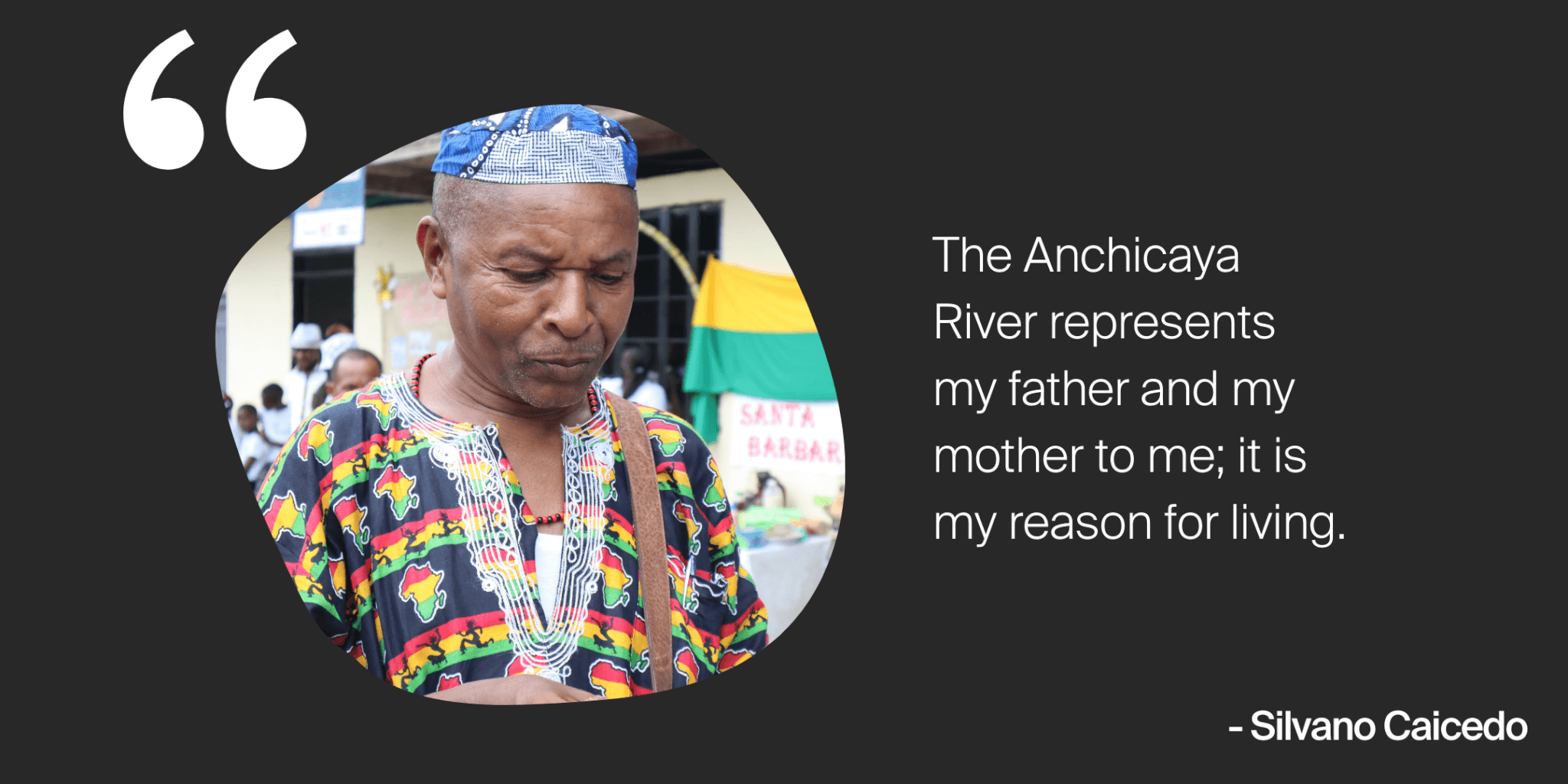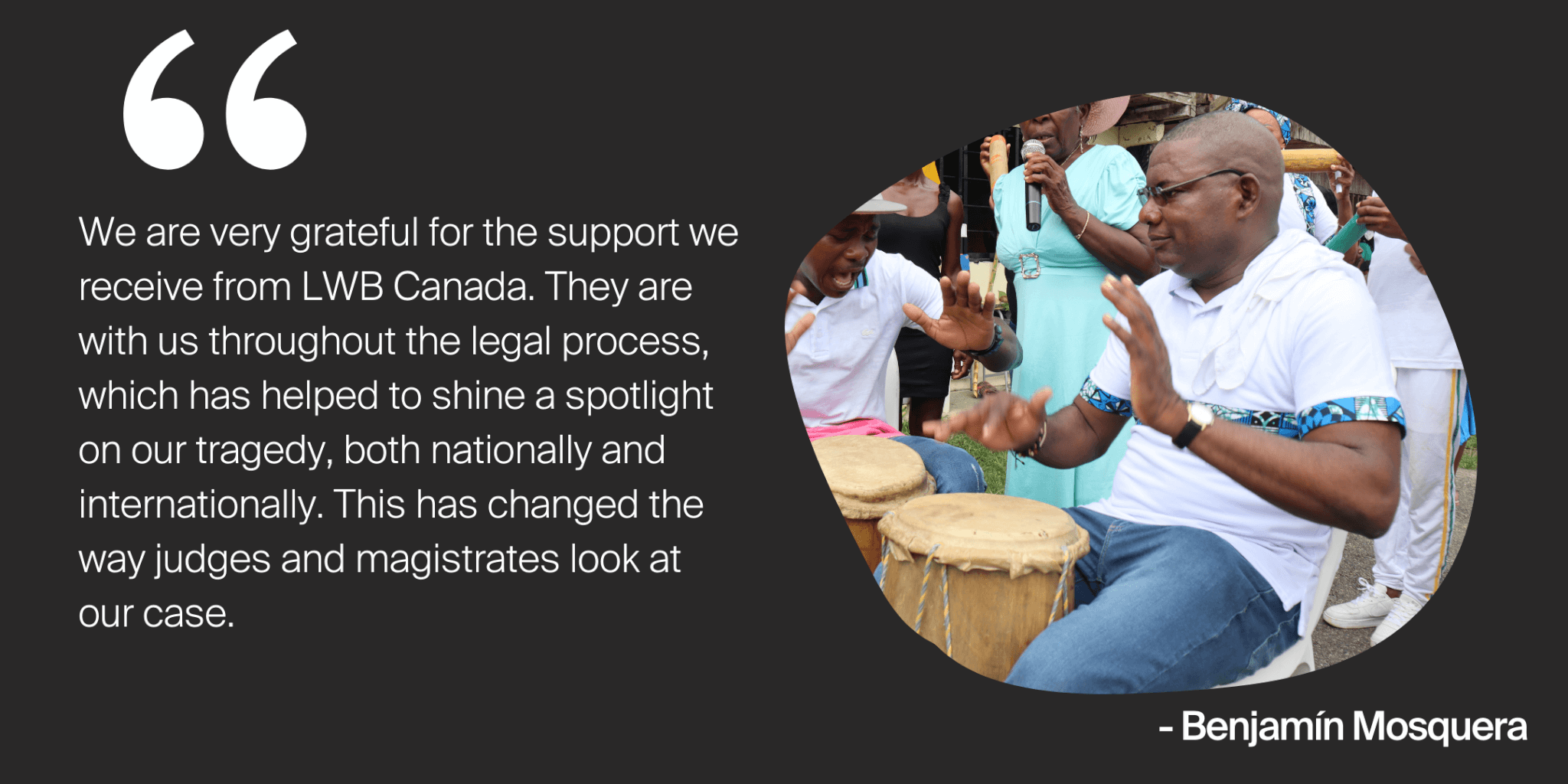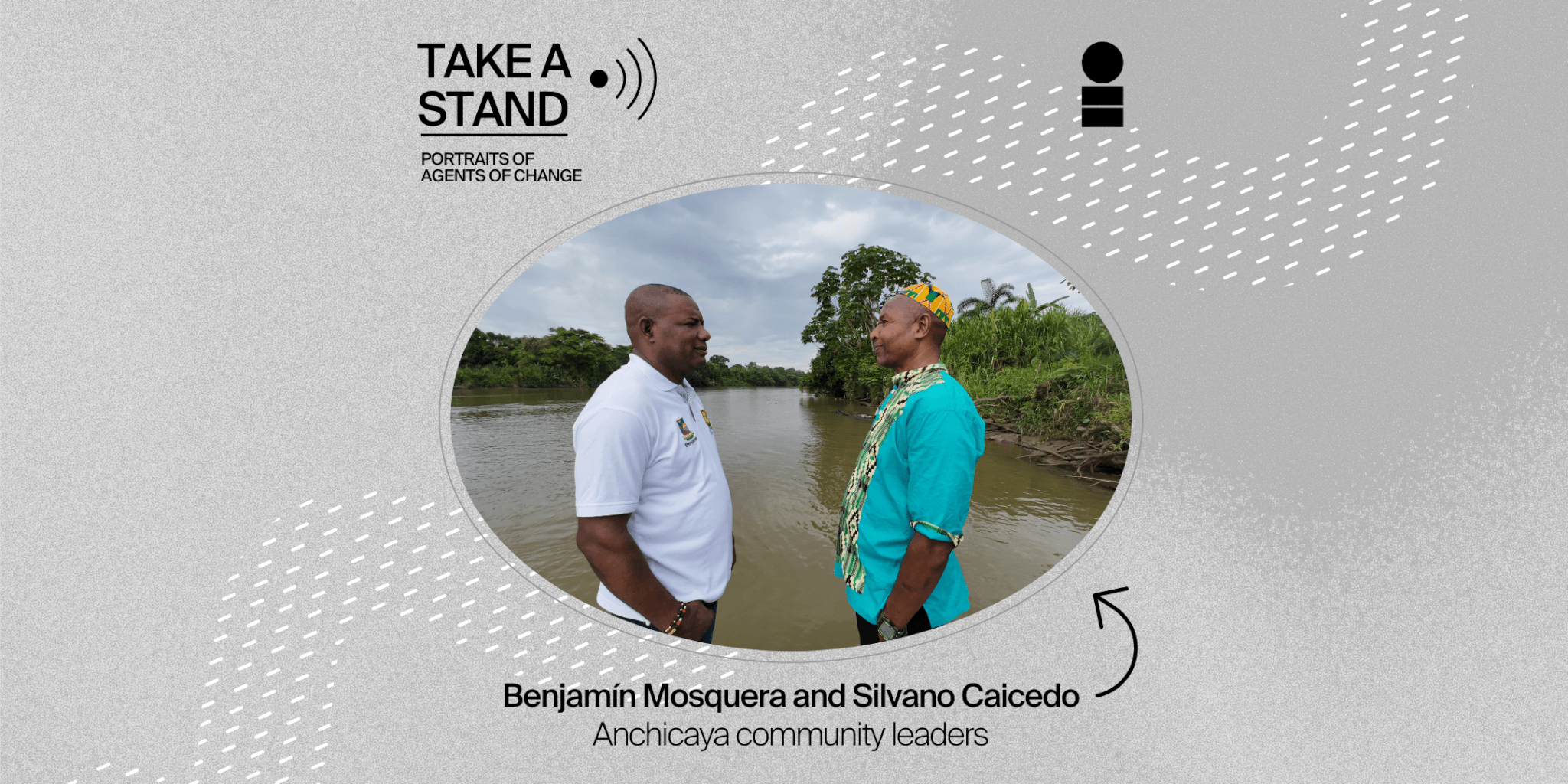
Benjamín Mosquera (left) et Silvano Caicedo (right)
For over twenty years, Silvano Caicedo and Benjamín Mosquera have been fighting for reparation after one of Colombia’s greatest ecological disasters: the deliberate dumping of contaminated water into a river in their community by a hydroelectric company. Here is a portrait of two community leaders who draw their courage from the river in order to better protect it.
On July 23, 2001, members of the Anchicaya community saw their lives changed forever when a hydroelectric company opened the floodgates of a dam on the river of the same name, allowing 4 million cubic metres of putrefied sludge to spill out, killing all forms of life.
When Sivano Caicedo talks about this event, his voice cracks with emotion as tears fill his eyes.. For this 57-year-old widower, the Anchicaya River means everything. It irrigates this territory populated by afro-descendant peoples who settled here during the Spanish colonial era; the river saw them being born, fed them, and transported them. The river’s headwaters are in the Cauca Valley, a coastal region in western Colombia, from where it flows into the Pacific Ocean. For this catechist and community health advisor, deeply attached to his African roots, this waterway is a source of life, both physical and spiritual.
“The Anchicaya River represents my father and my mother to me; it is my reason for living.” Silvano Caicedo
Silvano’s comrade in this struggle, Benjamín Mosquera, is equally indignant: for this 50-year-old teacher and educational coordinator, what happened here should be known to the whole world. For 25 years, the hydroelectric plant, which has been bought and sold several times and now belongs to CELSIA, had been neglected. Without proper maintenance, contaminated sludge accumulated. In 2001, the company decided to simply open the gates to get rid of the rotting sludge.
Benjamin explains the impact of this action on nature and on his community: “Contaminated water has caused many health problems for members of my community, such as skin infections. Fertile land was flooded, causing nutritional imbalance, especially among children. The riverbed has been altered and sedimentation complicates navigation and the economic, social and cultural activities of our people.”
The disaster caused by the company forced most of the inhabitants to leave their ancestral territory and live in nearby municipalities in precarious conditions, prompting some young people to join armed groups. Of the 6,000 people who once inhabited the territory, only 1,500 remain.
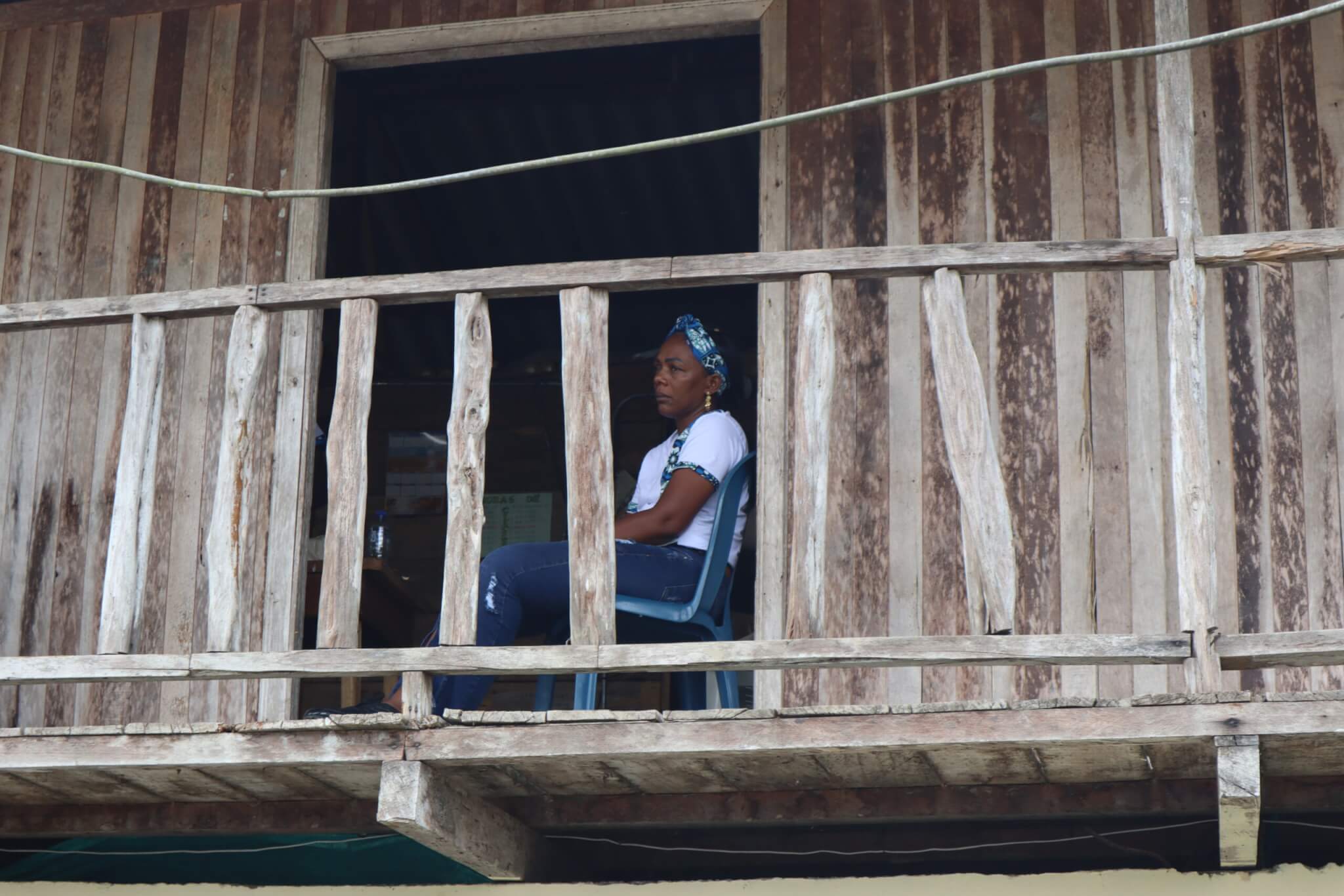
Woman at the window, Photographer: Alexis Coello from Click Digital
The two leaders and the community of Anchicaya have been carrying this cause forward for years, alerting the international community. With the help of their lawyer, Germán Ospina, they have filed a class action lawsuit against the company and the Colombian state for violations of environmental rights, the right to health, the right to healthy food and the right to a dignified life for all the people in the community.
Lawyers Without Borders Canada has also been supporting them for the past 10 years, through amicus briefs to the Colombian Constitutional Court and to the Inter-American Human Rights System in Washington. The aim is to demonstrate that the impact of the dumping of this contaminated sludge goes beyond the pollution of the river, and is part of a historical process of exclusion and discrimination experienced by these Afro-descendant populations and amplified by Colombia’s armed conflict.
“We are very grateful for the support we receive from LWB Canada. They are with us throughout the legal process, which has helped to shine a spotlight on our tragedy, both nationally and internationally. This has changed the way judges and magistrates look at our case.” Benjamín Mosquera
After several victories and setbacks in the Colombian courts, in July 2021 the Council of State of Colombia ordered the payment of 203 million Colombian pesos (equivalent to 68 million Canadian dollars) to the victims of the ecological disaster, as well as the implementation of compensatory measures such as the creation of a food substitution program, a fish farming project and agricultural aid. However, the Council only recognized 50 victims in the judgment. In disagreement with this restricted victim count, the Anchicaya community refused to accept this decision, and legal proceedings are ongoing.
Although all legal avenues have been exhausted in Colombia, the fight now continues before the Inter-American Human Rights System.
Silvano and Benjamin intend to continue fighting for justice and the protection of the river.
“Today, I want to tell the Anchicaya River that we appreciate it and are grateful for all it has given us. That we are part of it, and that we are ready to continue our fight. And as her children, we’re ready to play our part and defend her as much as we can.” Benjamin Mosquera
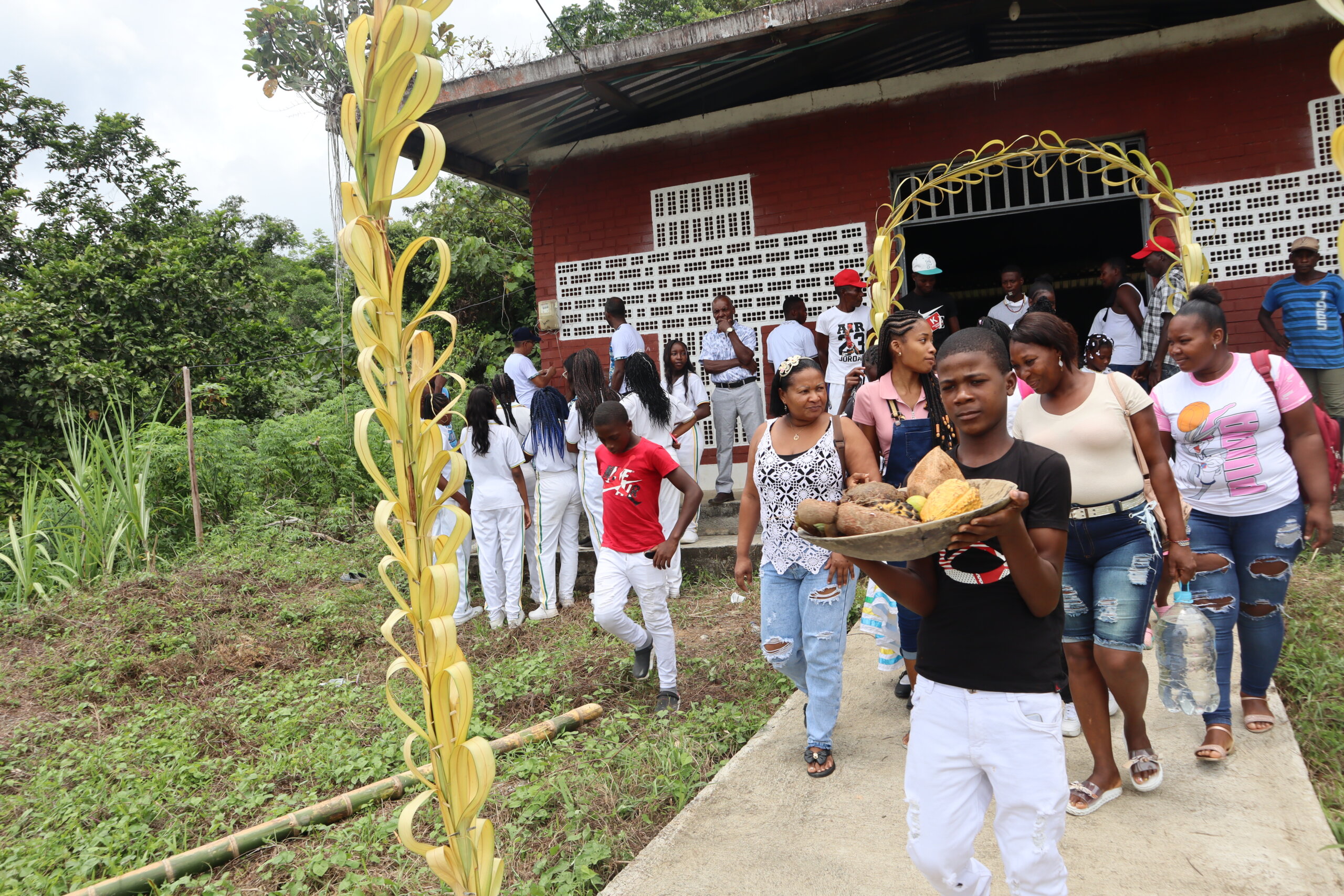
Religious celebration, Anchicaya community, Photographer: Alexis Coello from Click Digital
Some facts about the Anchicayá community
– Leaders of the Afro-descendant community of the Anchicayá River in Buenaventura, Colombia, have been awarded the “National Human Rights Prize” for their twenty years of legal action in defence of their territory. Read more here.
– Lawyers Without Borders Canada has been active in Colombia since 2003, and has had a permanent presence since 2011. Their team operates from its office in Bogota.
This publication was produced with the financial support of the Ministry of International Relations and La Francophonie of Quebec through the NQSF program.
